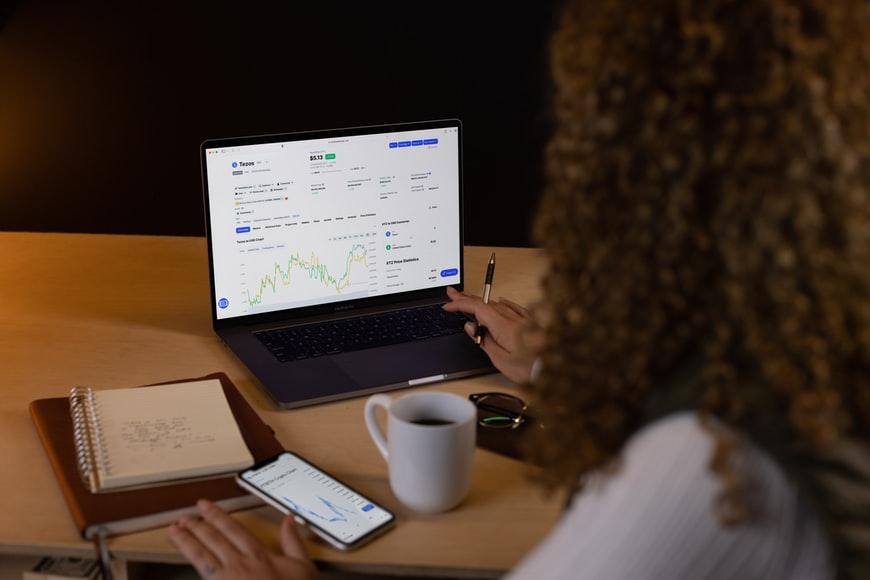How To Conduct Due Diligence Before Investing In Gold
6 Mins Read
Published on: 16 May 2022
Last Updated on: 13 November 2024

toc impalement
Gold is a very attractive investment option. The reason why gold has sustained its value over time is that it’s scarce. Even though gold is subject to fluctuations like other economic instruments, gold retains its value very well. Therefore, it’s a great asset to include in your investment portfolio because it dilutes the risk of your portfolio.
Because of technology, gold investing has become more sophisticated and extends to digital forms of investment such as exchange-traded funds (ETFs) and stocks. It’s not limited to physical gold bullion (bars) only.
These innovations have reduced financial barriers to entry, so you no longer need a large capital outlay to be an investor. But, since there are many options to choose from, you must conduct research to see which is best for you.
Each investment option has a unique set of pros, cons, risks, and barriers to entry. So, you will have to do some research beforehand, ideally. This is called due diligence. It’s essentially the process of doing background checks and research to analyze investment opportunities.
Due diligence makes sure that you invest in the right asset and deal with legitimate partners in the investment industry. That said, here’s how you can conduct due diligence before investing in gold.
6 Drastic Steps To Conduct Due Diligence Before Investing In Gold

1. Assess Costs
With gold investments, it’s not so much the cost of the gold that’s important. It’s about checking whether the costs are reasonable relative to market rates. You need to make sure that the costs associated with trading gold (transaction costs, storage costs, tax considerations, and so forth) are at fair market prices.
Storage costs are a very important part of due diligence because security is a priority when investing in gold bullion.
As far as dealing with custodians is concerned, you need to find out whether they have competitive management fees. Bear in mind that custodians will have unique cost structures. It’s a matter of figuring out which one is most ideal for you.
2. Check Track Records
Now, you must consider the track records of all the parties involved in the investment process. That goes for the dealers, custodians, brokers, and trustees.
Dealing with partners with a solid track record offers a sense of ease because experience is valuable. It’s easier to trust someone with experience and an outstanding track record than someone who doesn’t. Also, the good thing about working with experienced people is that their reputations are on the line. This means they likely won’t try to dupe you before or after the deal is closed.
A great place to look for track records is testimonials on company websites. Alternatively, you can check online reviews on Google. Doing these background checks matters because you certainly don’t want to work with the wrong people.
If you see a red flag in these reviews or testimonials, try a different one. Therefore, track records are a great gauge of trustworthiness. Reviews like this JM Bullion review can provide insights into the reputation of a company and help you make a more informed choice of which partners to choose.
Plus, it’s also important to consider whether the dealers you’re working with are certified by professional institutions or whether they’re licensed. Certification is a good sign of legitimacy.
3. Consider Certain Aspects Of Quality
Also, consider the quality of the gold and the service quality of your prospective partners. Quality determines the price of the gold you’re buying if it’s in physical form. But you can gauge the quality of non-physical forms of investment, too. The more secure and liquid stocks (for example, ETFs) tend to be of higher quality and trade for a higher price.
Regarding service quality from prospective partners, you need to understand that you’re not just an investor but a customer. Work with people who offer quality services. That means those who are legally compliant and conduct their business professionally. But often, quality comes at a premium.
Reputable brokers, for example, may charge slightly higher brokerage fees. But just make sure that the broker is indeed reputable and not a fraud.
4. Analyze Liquidity
This point is most relevant to those who trade gold-backed securities such as stocks, ETFs, mutual funds, and futures. All the gold investment options have varying levels of liquidity. Liquidity measures the ease with which you can sell or trade your assets for cash.
ETFs, for example, is highly liquid. So, if you have a choice between two competing products, gold bullion, and ETFs, it would make sense to invest in the more liquid asset (ETF) if you have a thinner investment portfolio.
Gold bullion is illiquid. But, if you’re looking to invest in the long term, gold bullion would be the better investment option.
5. Consider Trust and Transparency
Trust matters in investing. You shouldn’t work with a dealer or invest in something that you don’t understand. Now, as far as transparency is concerned, the best place to start is consulting with reliable referrals. Alternatively, you could work with experts in the gold investing market and find out which brokers and dealers are reliable.
Do your research. Here, you can research whether the prospective partners are transparent with their accounts. For something to be transparent, the audit procedures need to be detailed in the statements as well. But also check whether they have any published audit statements available online. Make sure that their publications and lists on their websites are verifiable against the provided data as well.
Most importantly, you need to check whether there are any records of an annual vault audit. The reason why you need this information is so that you can gauge the performance of the business. But also observe whether their records are accurate and realistic. Numbers don’t lie.
So, if you’re buying gold stocks, for example, you’ll need to calculate whether shares are under or overpriced. You can also confirm whether the fee structures are reasonable and easy to understand by analyzing these statements. Compare year-on-year numbers and decide which investment is best suited for you.
6. Identify Risks
Though gold is a very stable asset, investing in it doesn’t make you immune to investment losses. There is always a certain degree of risk associated with investing in any asset, including gold. That’s why you need to anticipate these risks and prepare for them before investing.
Regardless of how you intend to invest your money, check whether the risks associated with investing in your option are worth it. For example, if you’re investing in bullion, you can research the supply chains to see which risks are involved in the sourcing and supply of gold bars. Confirm if the supplier sources their gold sustainably and whether it comes from a conflict-laden area.
There are restrictions on mining or transporting gold from high-risk areas. Therefore, if you can determine that a company is clean on this front, you are buying or investing in sustainable gold. If it’s not clean gold, it’s a risky investment. Therefore, details of the origin of gold bars should be made transparent for safety and compliance reasons. This information can only be uncovered by doing these background checks.
Conclusion
Due diligence is vital before investing in gold because there’s a risk that you could get duped or make the wrong decision, especially if you’re a beginner. But, dealing with reputable dealers who use trustworthy markets and provide expert advice will save you the pain of suffering irretrievable losses. Work with reputable partners throughout the entire process.
Read Also:


















Comments Are Closed For This Article